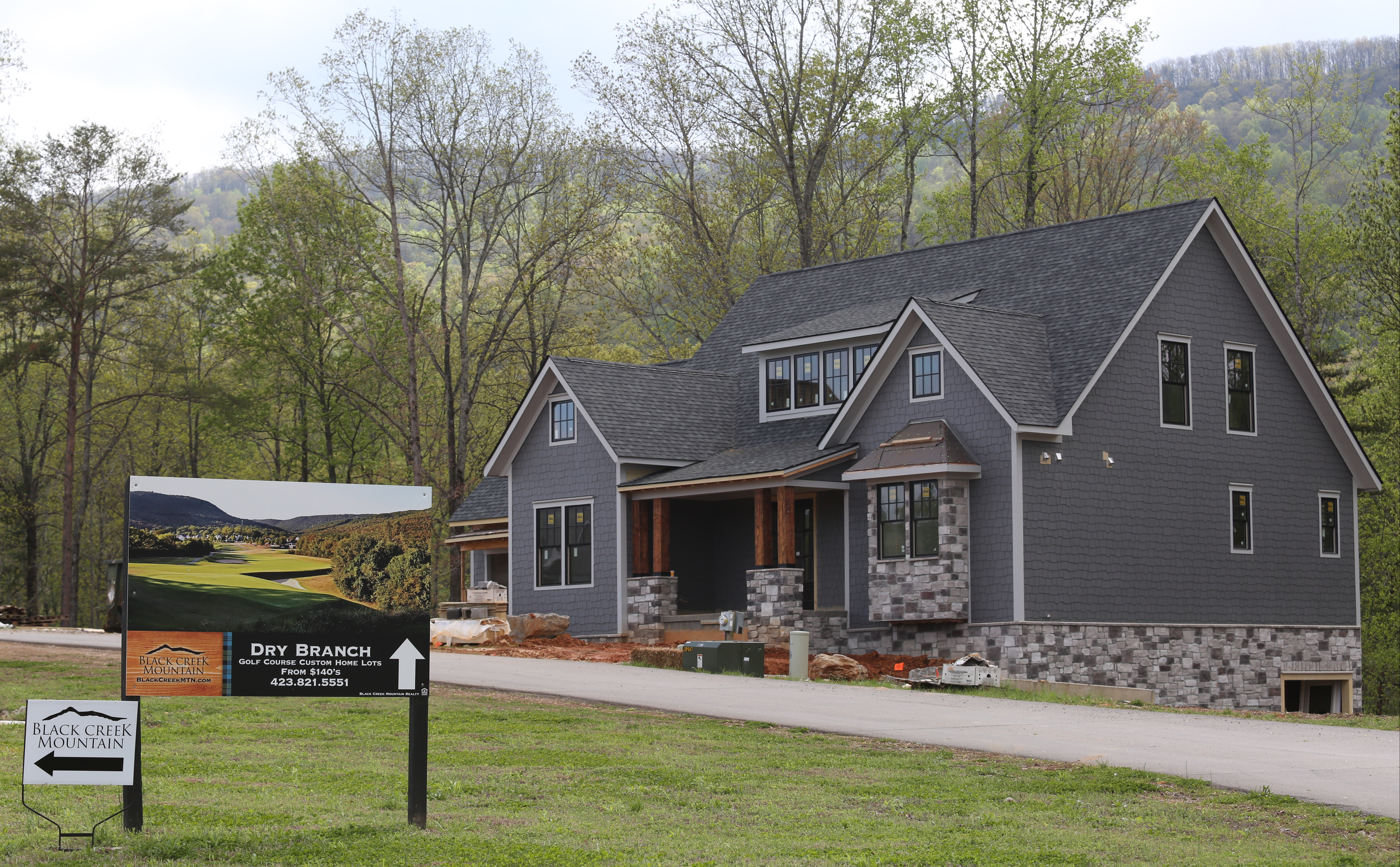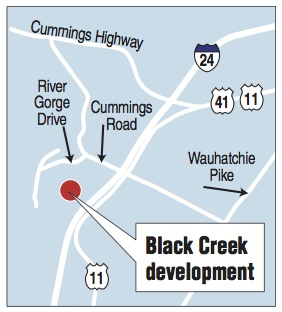The David and Goliath story of a private citizen who sued Chattanooga and Hamilton County to stop a high-end development financed by taxpayers took another turn this week, after the government suffered a setback in Chancellor Frank Brown's courtroom.
The government's main piece of evidence - a letter from Nashville attorney George Masterson stating that the project was legal - was struck down. Brown found that Masterson was being paid by the developer at the time he rendered his opinion to the city's Industrial Development Board an apparent conflict of interest.
Another hearing on Thursday could finally answer the question of whether the Black Creek Mountain development, specifically the proposed road that workers will build up the mountain, qualifies for the tax increment financing it has already received.
Developers and government officials say yes. Helen Burns Sharp, a retired city planner who sued the city and county, says no.
Under tax increment financing, developers issue debt to pay for certain improvements allowed under state law, such as sewage treatment plants or factories. The debt is then paid back by taxpayers, allowing developers to pay a lower tax bill for a specified period, such as 20 years, until the bond is repaid.
But only certain projects qualify for such financing. And Sharp claims that residential projects, which typically cost municipalities more in services than they provide in tax revenue, weren't the intended recipient of taxpayers' largesse.
"State law says an eligible project can have something to do with pollution control, that includes wastewater treatment systems," Sharp said. "[Black Creek Mountain's developers] are proposing to do a sewer line, one line, L-I-N-E, in the right of way in the road, going up the mountain, so that counts as a wastewater collecting system. No it doesn't, that's a sewer line, for heaven's sake."
Sharp and a small group of supporters say that government financing is meant to stimulate projects that create jobs or provide an important civic function, like a manufacturing facility or a wastewater treatment plant, and which would be difficult to build unless taxpayers stepped in to help with costs.
However, it's not clear what happens next if Brown rules in favor of Sharp's challenge to the Black Creek Mountain development, which has already been approved by the Industrial Development Board, the City Council and the County Commission. It's also unclear what will happen to the $9 million in debt that the developer has already issued, although city attorney Phil Noblett says that taxpayers won't be on the hook if the money must be returned.
"Those bonds were issued and folks bought those bonds, and that would have to be reversed," he said. "Somebody's going to be made whole."
Noblett argued that the project should go forward as is, or return to the Industrial Development Board for re-approval. If the Masterson opinion isn't valid, developers can simply get another opinion or change the plan slightly as needed, he said.
"The definition of a project, and the chancellor will have to look at that, it contains all the things that Mr. Masterson put in his opinion," Noblett said. "It talks about sanitary sewer improvements, roads, mixed-use developments, commercial developments, which [developers] are including in the economic impact plan in this area. All those things would fit."
If Brown steers clear of issuing a summary judgment on Thursday, a full trial is scheduled to begin on Tuesday.
Contact staff writer Ellis Smith at 423-757-6315 or esmith@timesfreepress.com with tips and documents.


